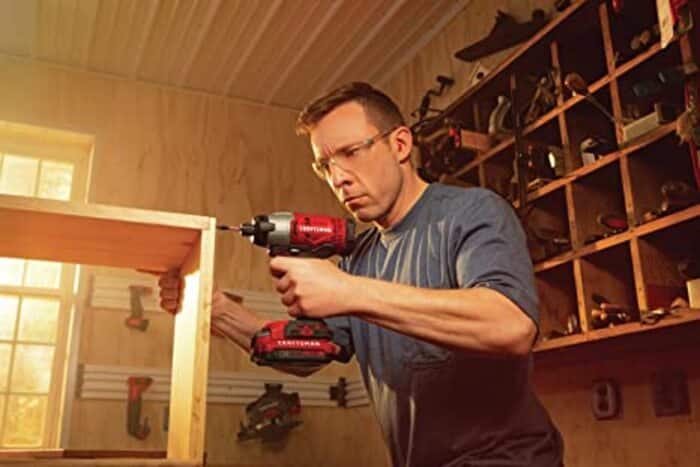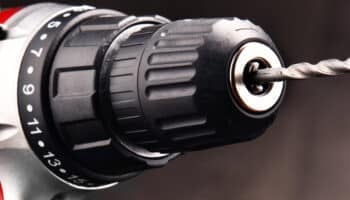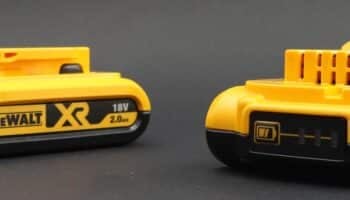We've independently reviewed this article to make sure it's as accurate as we can make it.
To find out more about our article creation and review process, check out our editorial guidelines.
Are you trying to understand the differences between Craftsman vs Ryobi?
You’re not alone! Wanting to tackle a DIY project but not knowing the difference between these reliable brands can feel a bit frustrating.
Luckily, you’ve come to the right place.
When choosing between Craftsman vs Ryobi power tools, you need to consider your needs. While both brands are perfect for DIY enthusiasts, Craftsman tools are compact and easy to handle. Ryobi offers a wider selection at a more affordable price with a longer-lasting warranty.
Keep reading to learn more about their differences!
Ryobi vs Craftsman Power Tools
Both Ryobi and Craftsman have maintained fairly good reputations and have created products that have stood the test of time. Basically, both are worth your consideration.
So how do they compare? Which (if either) is better?
To make things easier for you, in this section, we’ll compare both brands across 7 categories.
#1 Power
While Craftsman is typically considered to be the lighter and more compact of the two brands, Ryobi is considered to have more low-speed power.
Note: With either of these brands, don’t expect your battery to last longer than one year if you use your power tools regularly. But the good news: the batteries are cheap enough that you can probably afford to replace them.
On average, a Craftsman battery should last up to 8 hours, as opposed to 9-10 with some Ryobi models.
Power Winner: Ryobi#2 Customer Satisfaction
Both brands have a fairly good and consistent reputation with their customers. However, a quick search of the Better Business Bureau, Amazon reviews, and other places product reviews are left, generally reveals Craftsman to carry a slight lead in publicly posted reviews.
While this may not be the most scientific way to measure customer satisfaction, it does mean something that Craftsman reviews are slightly better.
As a brand over time, Craftsman has been a more reliable name in the industry than Ryobi.
Customer Satisfaction Winner: Craftsman
#3 Ease of Use
The performance of both brands is typically mid-level. So while both tools are considered good choices for entry-level projects, a simple side-by-side of similar products will typically show Craftsman to be lighter and more compact than Ryobi.

Meaning Craftsman is a little easier to handle on home and DIY projects—for which the tools are typically intended.
Ease of Use Winner: Craftsman
#4 Features
With nearly identical materials and design—with some tools from both brands made in the same factory—it’s difficult to determine which of the two brands is better in terms of features. Especially since the features are different depending on the tool.
But because Ryobi has a wider selection of power tools that introduce a broader array of features, Ryobi has a slight edge in terms of features.
Ryobi is still creating and innovating and bringing new tools to the market.
Features Winner: Ryobi
#5 Noise
When comparing Ryobi vs Craftsman noise level, you need to keep in mind that this may vary depending on the specific tool and its use.
However, the noise level seems to be consistent between the two brands, meaning it’s a toss-up.
Noise Winner: Tie
#6 Price
When it comes to price, Craftsman and Ryobi don’t have much competition for what they offer at their current price point.
But because of the warranty options and slightly more powerful capabilities, Ryobi has the leading edge, making it a great choice for those who want a reliable power tool without breaking the bank.
Price Winner: Ryobi
#7 Warranty
While Craftsman offers some impressive warranty options on many of their products, they typically only cover their power tools for one- or three-year limited warranties. While this isn’t unheard of in the power tool market, it isn’t anything impressive.
Ryobi, on the other hand, offers at least a two- or three-year warranty, and they even offer a limited lifetime warranty on some of their tools.
A quick look online will reveal fewer complaints against Ryobi than Craftsman in terms of how warranties have been handled.
*Quick note: Because of the Sears bankruptcy situation, the Craftsman warranty now states that an original receipt must be produced in order for the warranty to be honored.
Warranty Winner: Ryobi
Craftsman and Ryobi Power Tools: Interesting Facts
Both brands have unique qualities that set them apart in the power tools’ industry. So, if you haven’t made up your mind yet, here’s some interesting facts about each brand that can help you decide.
Craftsman Power Tools
Some—but not all—Craftsman tools are made in the U.S., (as well as some plants in China, and Taiwan) by the Apex Tool Group.
The brand was created by Sears/Roebuck and was originally intended to be the Sears brand of power tools. And for many years, they got what they wanted. Throughout the 80s, Sears was known as the largest U.S. retailer, and their line of power tools had a solid reputation.
In 2018, however, Sears’ parent company officially filed for Chapter 11 bankruptcy. So with all the financial hurdles, Sears sold the Craftsman brand to Stanley Black & Decker.

It is generally believed that while selling the brand made sense, the tools have suffered somewhat in quality since Sears owned and managed the brand. Changes in manufacturing have resulted in updates that haven’t necessarily improved on the original products.
It’s also worth mentioning that Craftsman is neither a high-end nor low-end brand. It is considered middle-of-the-road.
Although appropriate for homeowner and DIY use, Craftsman tools may lack features found in professional-grade tools.
Ryobi Power Tools
Ryobi Power Tools is owned by Techtronic Industries Company Limited, a company based out of Hong Kong.
While many Ryobi power tools were made right here in the U.S. for many years, today the majority of Ryobi tools are made in China and shipped to the U.S. This can be a drawback for buyers who prefer U.S.-made tools.

While it may be tempting to think that tools made in China won’t measure up in quality to tools made in the U.S., it’s important to note that Ryobi tools are considered to be some of the best power tools in the price range, due to their versatility and durability.
Bear in mind that Ryobi is neither a high-end nor low-end brand. It is considered middle-of-the-road.
Conclusion
Both Craftsman and Ryobi power tools are mid-level products sold at mid-range prices. In other words, both of these brands are aimed at hobby and DIY enthusiasts.
If you are a hobbyist or a DIY enthusiast, you probably won’t go wrong investing in Craftsman or Ryobi power tools for your projects. If, on the other hand, you are a professional or are interested in becoming a professional, you may want to save your money and invest in power tools that are a bit more professional-grade.
That said, there may be situations where using a Craftsman product makes sense, or a project where a Ryobi power tool is the product of choice. Here are a few considerations—
Use Craftsman if:
- You want American-made tools.
- You want an easily recognizable brand that has stood the test of time.
- You want a more compact, easy-to-handle tool.
Use Ryobi if:
- You want a more reliable, potentially longer-lasting warranty.
- You want a wider selection of power tools.
- You want to buy a budget-friendly kit.
Thank you for checking out this article.
If it’s been helpful to you, then make sure you check out some other articles and free guides on our website! And stick around for more helpful answers to your home and appliance questions.
Have a question for us? We’d love to hear from you. Contact us here.
I wish you all the best.
— Craig.







